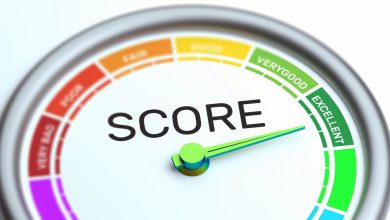Is the 4% Cash Back U.S. Bank Smartly Visa Signature Card Worth It?

U.S. Bank is set to release their U.S. Bank Smartly Visa Signature Card with a heck of a headline – up to 4% cash back on every purchase with no limit.
It’s a big headline because right now, you typically only get high cash back rates on a few transaction categories with some limits. Fidelity offers a 2% cash back on the Fidelity® Rewards Visa Signature® Credit Card with no annual fee, but your points are deposited into a Fidelity account (a small catch). And there are several 2% cash back credit cards out there.
Having 4% on everything with no limit is a pretty good deal but we need to look at the fine print because you have to meet some requirements to get 4%.
How to get 4% cash back
The card offers unlimited 2% cash back on all purchases. You have to have a U.S. Bank Smartly Checking account because the cash back is deposited there. The U.S. Bank Smartly Checking account is a fairly standard checking account with a $6.95 monthly maintenance fee that can be waived if you have:
- Average account balance of $1,500 or greater
- Have an open qualifying U.S. Bank consumer credit card
- Combined monthly direct deposits totaling $1,000+
Presumably, the U.S. Bank Smartly Visa Signature Card would check off that second bullet and you won’t pay a fee.
To get more than 2% cash back, you need to put assets with U.S. Bank. You need a U.S. Bank Smartly Savings account and the cash back is based on your average daily combined qualifying balances in U.S. Bank deposit, trust or investment accounts:
- Earn 2.5% when you have a qualifying balance between $5,000 – $49,999
- Earn 3.0% when you have a qualifying balance between $50,000 – $99,999
- Earn 4.0% when you have a qualifying balance between $100,000+
Best way to meet this balance requirement?
The U.S. Bank Smartly Savings account is decent for a brick and mortar bank – it offers 4.10% APY (when you have a checking account too and combined qualifying balances of at least $25,000). Most brick and mortar banks offers 0.01% APY!
The account does have a $5 monthly fee that is waived if you have the checking account.
BUT putting $100,000+ in a savings account would be foolish.
A better alternative is to open a U.S. Bank self-directed investment account.
If you have $100,000 in assets somewhere else, transfer them to a U.S. Bank self-directed investing account. You get 100 free online trades a year, which should be plenty, but otherwise it’s $4.95 for stock and ETFs. There is a $50 annual account fee unless you have a statement household balance above $250,000.
Is this card worth it?
First, how much in assets are you be willing to move into U.S. Bank? If you have $50,000+ then you can at least get the 3%, which makes it slightly better than most other high cash back cards. If you have $100k+, then you can get the full 4%.
Is it worth all this effort to get 4%? That’ll depend on how much you spend and what that cash back amounts to. You can open a Fidelity credit card (and a Fidelity brokerage account) and get 2%. There are credit cards that give you 3% on select categories with limits.
For every $10,000 of spend on your credit card – it’s worth an additional $200 in cash back over a 2% cash back credit card.
One additional incentive is that U.S. Bank offers a new account bonus of up to $450 when you open a new checking account and complete qualifying activities. Between your spend and that incentive, it might make sense for you.
Personally, given our spend and mix of credit cards we have now, we get a competitive cash back rate and these hoops are going to be a bit too much for us to consider this.
Other Posts You May Enjoy:
Investing Is and Should Be Kept Very Simple (Here’s Why It Isn’t)
Investing does NOT have to be complicated but society (and our minds) seems to want it to be. That’s because their incentives are not aligned with yours. Investing doesn’t have to be complex or difficult, here’s how to do it simply but effectively.
Current Credit Card to Airline & Hotel Transfer Bonuses September 2024
Want to know the best airline and hotel transfer bonuses available right now? We will keep track of the best transfer bonuses so you can get the maximum value for your points and miles.
My Raisin (SaveBetter) Review 2024: Is Raisin Legit?
Raisin is a new savings account platform that gathers industry-leading offers from its FDIC-insured banking partners. The savings and CD rates you get through Raisin are often higher than what’s available to the general public. In this Raisin review, I analyze their offers and let you know how good the savings rates are and if the platform is legit.
Back to School Sales Tax Holidays 2024
It’s back to school season and many states have sales tax holidays to help lower the cost of many of these items. We list the states and the sales that are still left for this year.

About Jim Wang
Jim Wang is a forty-something father of four who is a frequent contributor to Forbes and Vanguard’s Blog. He has also been fortunate to have appeared in the New York Times, Baltimore Sun, Entrepreneur, and Marketplace Money.
Jim has a B.S. in Computer Science and Economics from Carnegie Mellon University, an M.S. in Information Technology – Software Engineering from Carnegie Mellon University, as well as a Masters in Business Administration from Johns Hopkins University. His approach to personal finance is that of an engineer, breaking down complex subjects into bite-sized easily understood concepts that you can use in your daily life.
One of his favorite tools (here’s my treasure chest of tools, everything I use) is Empower Personal Dashboard, which enables him to manage his finances in just 15-minutes each month. They also offer financial planning, such as a Retirement Planning Tool that can tell you if you’re on track to retire when you want. It’s free.
Opinions expressed here are the author’s alone, not those of any bank or financial institution. This content has not been reviewed, approved or otherwise endorsed by any of these entities.




